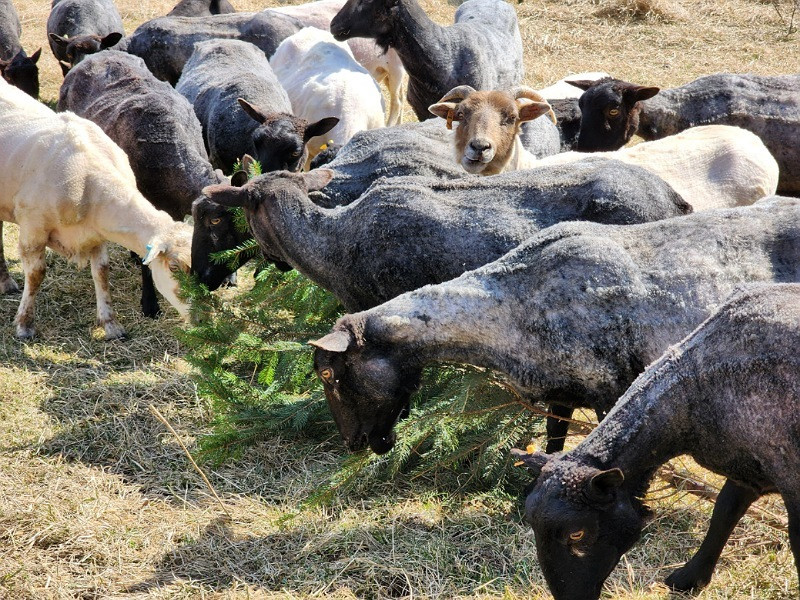Keeping Sheep Healthy
posted on
April 20, 2023

Sheep and parasites
As you may know, we don't care for synthetic or commercial de-wormers on our farm. That can be interesting when raising one of the most parasite prone livestock species, sheep.
Fortunately, parasite infections are not a lot different than viral or bacterial infections. That means we can tackle the problem like bacterial and viral infections. A clean environment and a healthy animal are a parasite's kryptonite.
So why don't we just do what most other sheep farmers do and go to the store, purchase a commercially prepared worming medicine and dose the sheep hoping for success?
The reasons we don't dose the sheep with medicine
For one, this is less and less of a simple fix. Parasites are building resistance and medicines just don't work as well as they should.
Even though these medicines are expensive, that's not the driving reason. My biggest reason for avoiding use of commercial de-wormers is that they do not only target parasites. The medicine is effective at killing many species of good bugs. Good bugs that also compete against parasites.
The medicines are disruptive to healthy gut flora in the animal as well as dung beetles, earthworms and other external critters. So, by fighting nature in attempting to fix the problem, we can often ensure that the problem does not resolve.
How we deal with parasites
First off, we start with a healthy animal. An animal that has access to balanced minerals.
Copper especially is a mineral that is often limited in commercial sheep diets as it has potential toxic effects if consumed in large quantities. The problem with eliminating it from the diet is copper is absolutely essential to a sheep's immune system.
On the farm, we give copper free choice in the mineral feeder to our sheep. Their instincts direct an appropriate consumption. We also feed a diverse plant diet to our sheep through grazing. Many plants have natural anti-parasitic properties.
We will sometimes throw some pine branches to the sheep in the winter when they are limited on variety. There have been some studies done that indicate pine has some great anti-parasitic compounds. We don't feed much though as they have the potential to overdue it (kind of like us with candy) and it can turn toxic.
We also rotationally graze. The lifecycle of parasites is limited and requires time outside the sheep. We can break that cycle by giving the pasture rest time and allowing the new little parasites to die rather than being consumed by the sheep. Of course rotationally grazing on fresh pasture is a huge contributor to the health of the sheep.
Why healthy sheep are important
It is inevitable that the sheep will come across parasites in the environment at some point. But a healthy sheep has a low susceptibility to infections of any kind, including parasites. The parasites will struggle to reproduce and take over in sheep with a healthy immune system.
Genetics also play a role, although it is smaller. Some sheep, no matter how hard you work at it, just seem to fall for every infection that comes along. We avoid those sheep in our flock.
For full transparency, we have occasionally used a prepared de-wormer with our rams. During breeding season, they will not eat and wear themselves out. As a result, they can become highly susceptible to parasites.
What I do though if I am treating a ram medically for an infection is remove it from the rest of the flock. This way they won't be dropping it back on our healthy pastures. I am looking for ways to avoid needing to use medical treatments at all, even with the rams.
We do not use commercial de-wormers in any of our ewes or market lambs. We remain committed to providing you with meat that's free of antibiotics and hormones.
Of course, we also know that a healthy sheep produces flavorful, nutrient dense lamb as well. Eat with confidence!




